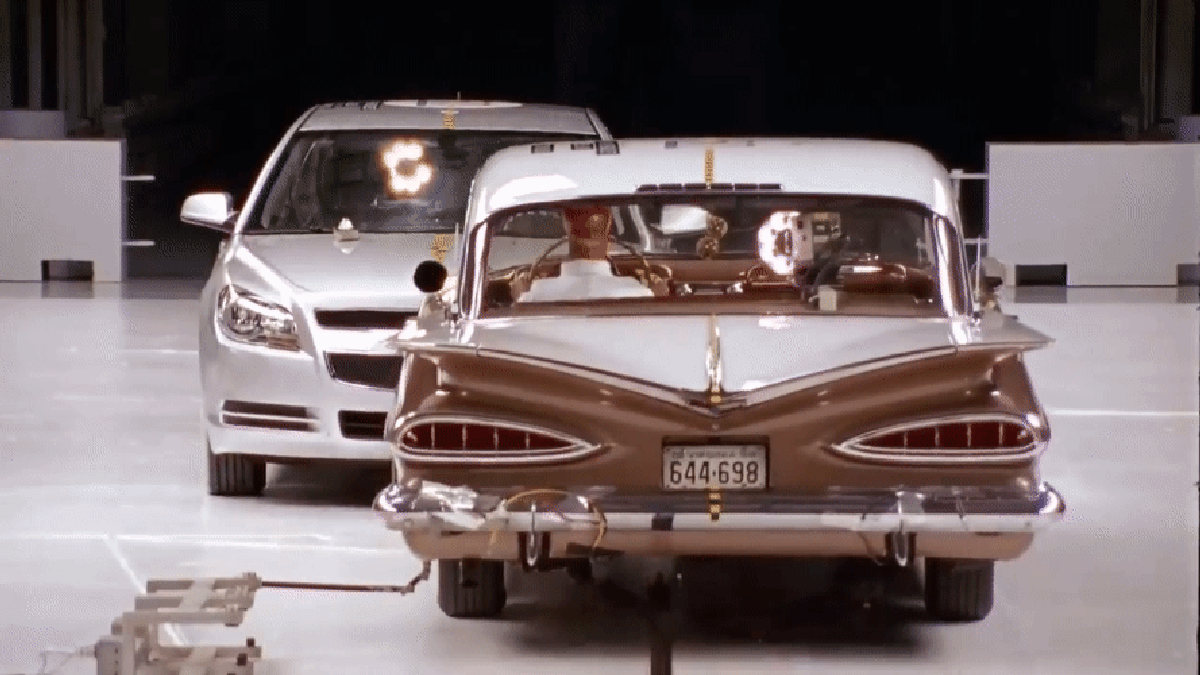The first IIHS tests of automated front crash prevention systems was implemented in 2013, and tested vehicle detection of vehicle-to-vehicle, and front-to-rear crashes. In the early days of this test, ratings were assigned based on tests conducted at 12 and 25 miles per hour, as a technician drove the vehicle straight toward a stationary dummy car target that simulated the back of a real car. The benefits of an effective front crash prevention system are obvious, even if these systems don’t entirely avoid an impact, they are likely to significantly reduce the speed at which the impact occurs, thus increasing survival chances and minimizing injury potential for all parties involved. The IIHS stopped its vehicle-to-vehicle evaluation of front crash prevention systems in 2022 because virtually all new vehicles were earning advanced or superior ratings, partially due to a voluntary commitment by automakers that the IIHS helped broker. The Institute is in the process of developing a more challenging test to account for higher speed tests and crashes that involve non-passenger vehicles, as well.

Here’s How IIHS Crash Tests Have Evolved Over Almost 30 Years
Denial of responsibility! NewsConcerns is an automatic aggregator of the all world’s media. In each content, the hyperlink to the primary source is specified. All trademarks belong to their rightful owners, all materials to their authors. If you are the owner of the content and do not want us to publish your materials, please contact us by email – [email protected]. The content will be deleted within 24 hours.






